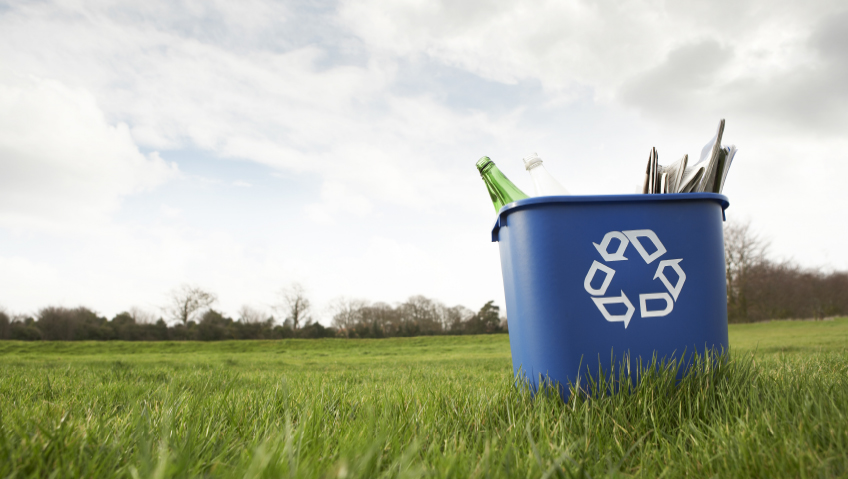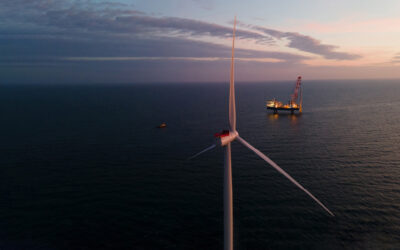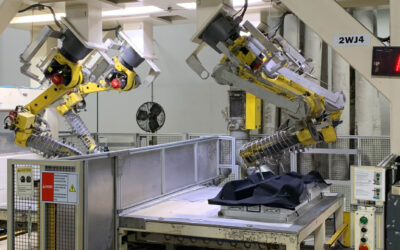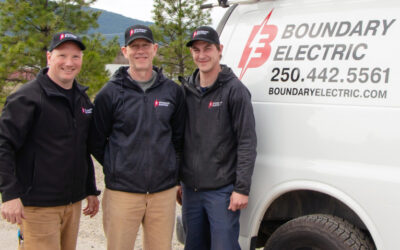Peninsula Plastics Ltd. continues to expand, adding new products, new staff, and possibly new markets, despite the pandemic. This family firm, based in Fort Erie, Ontario, offers custom injection moulding while a separate division manufactures proprietary plastic parts. It has approximately 130 workers at present up from roughly ninety this time last year.
“In the last two or three years, we’ve purchased four or five new machines,” says President Craig Bolton. “Every time I bought a new machine, we needed more people because we run 24/7… We had our best year ever… We were growing and still are.”
Originally founded as a custom injection moulding firm, Peninsula has become a one-stop shop offering a comprehensive package of services including consultation, part and mould design, manufacturing, packaging, warehousing, and shipping.
A division called Nova Products makes goods such as pest control devices, spools, hydro components, glass case inserts, recycling containers, and advertising items. Of these, recycling products bring in the most revenue. Nova Products specializes in ‘blue bins’ for paper and plastic recyclables and ‘green bins’ for organic waste and kitchen scraps. These recycling containers are sold to municipalities and other clients across Canada and into the United States.
The Nova Products division is currently working on new wares including a smaller version of its organic green bin and a stackable blue bin. When possible, Nova Products uses recycled plastic for its products.
Like all other North American businesses, Peninsula had to reckon with the advent of COVID earlier this year, followed by lockdown orders. “We didn’t realize at first what category we were going to be classified in, in terms of staying open. It ended up we fit into several categories. We make food packaging products and waste control products. [So, we are] considered an essential service,” notes Bolton.
The virus didn’t hurt business, and company officials were determined not to let it affect staff. To keep everyone safe, a wide-ranging health regime was instituted. “We’re doing the full gamut; there’s a sign-in, health questions, temperature check, distance control, mask-wearing, signage for washing hands. We do as much as we can in the plant. We bought a line of masks and gave them to the employees – masks with our logo on them,” he says.
Peninsula Plastics has a decades-old lineage. A Bolton family friend who ran a small injection shop in Georgetown, Ontario decided to retire and offered the shop to Bolton’s father, who bought the business in 1976. Along the way, the company moved to Fort Erie and the corporate name was changed to Peninsula Plastics to reflect Fort Erie’s location on the Niagara Peninsula.
The fledgling firm had three small machines, while staff consisted of “my father and maybe one other person,” Bolton recalls.
Initially, the company focused only on custom injection moulding. “In injection moulding, there are people who just won’t take the small jobs. We were the opposite. We took every small job that just came up and I think we built our business on that. No job was too small,” he states.
Over the years, the firm’s reputation grew and so did the business. Bolton took over in 1989 following his father’s retirement. It continued to expand, adding the Nova Products division in 2010. Bolton, who is currently Peninsula’s sole owner, has two sons who work for the business. For now, the plan is to maintain its status as a family-run business.
The company treats its employees well, which encourages loyalty and hard work. “We offer full benefits, including dental. We have an RSP program. You can join, and [we] match the money you put into it. We have a bonus program. During COVID, at the beginning of the lockdown, we offered all our employees COVID pay for a few months. We promote from within; we use a seniority system and try to keep things as fair as possible. We also try to have a pizza day every other month, and if there’s a special occasion, we celebrate it. We also just put in all-new washrooms and a big, beautiful cafeteria with comfy chairs,” he says.
Since employees tend to stick around, Peninsula boasts a great deal of workforce wisdom when it comes to injection moulding and plastic part manufacturing.
“There’s a lot of knowledge here now. When my dad had his shop, I worked there after school. I joined in 1989 and learned the industry very well. A lot of people appreciate the help that we give. We really bend over backwards for a lot of people,” he says.
Peninsula’s popularity has also been enhanced by its strategy of offering start-to-finish services. The company will consult with customers about products they have in mind and then develop a design using three-dimensional computer-aided design (3D CAD) software.
“People that have an idea to make a product call us. They want to make a plastic part, but there’s a lot more than just wanting to make a part. You have to come up with a CAD design. You have to direct [clients] in the right way to produce a part so it can be made easily as an injection-moulded part,” says Bolton.
The firm currently has thirty-four injection moulding machines – some of them behemoths over 1,500 tons in size – based in a 65,000-square-foot facility. Once a product is created, the company’s packaging options including clamshell, blister, heat sealing, and polyethylene bag packaging, plus labelling.
“We do a lot of custom packaging. I would say most of my custom injection moulding includes [packaging],” he says.
Peninsula also offers logistics services from a 30,000-square-foot warehouse where it stores products and does distribution and pickup. From here, it can take care of brokerage arrangements for customers who want to ship items to American destinations.
To ensure it stays on top of the curve, the company utilizes a comprehensive quality management system that involves frequent audits, extensive documentation, and constant monitoring. It has ISO 9001:2015 and NSF product certification and has employed the Good Manufacturing Practices (GMP) program. The latter covers everything from equipment maintenance to sanitation and materials storage to ensure that Peninsula produces safe, high-quality food packaging products. The company also implemented the Hazard Analysis and Critical Control Points (HACCP) system to further maintain high-level food packaging safety.
In addition to these measures, the firm recently installed a new enterprise resource planning (ERP) software system in its offices. “Our ERP system has the quality control aspects built-in,” states Bolton. “Everything about the job is already built into the system.”
The company has embraced other advanced tools as well. Roughly a decade ago, it introduced robotics in its operations. Instead of using human operators to take parts out of machines, the company now relies on robotic arms.
The switch improved worker safety while producing consistent cycle times. “In injection moulding, cycle time is everything,” notes Bolton.
Clearly, all these efforts have paid off, given the sheer scale of the company’s operations. It currently uses over fifty kinds of resins and plastics and hundreds of colours. “We buy railcars full of polypropylene and polyethylene. We’re always three months ahead on purchasing materials,” he says. Moulding materials are kept in silos then piped into the plant when needed.
While business is booming, the pandemic has had a negative impact in other ways. The company used to attend trade shows, for example, to promote the Nova Products division. Company representatives once participated in up to thirty trade shows a year, but since the lockdown, all in-person trade shows have been cancelled.
Most of the company’s promotional efforts are designed to get Nova Product wares “in front of people,” says Bolton. Peninsula does not do much to promote its injection moulding services because there is no need. “I probably haven’t done a trade show on the injection moulding side for at least three or four or five years now. We’re too busy. I’m saying no to work. We’ve been around so long, people know about us,” he explains.
Given how well things are going, he has high hopes for the future. “I think we’re going to probably branch into another product line… [maybe] home organization products. That’s kind of a big thing going on these days. We’re looking at a few other little things. I think that we will also be doing more of our own proprietary line, but that doesn’t mean we’re not going to continue with the custom injection moulding. I think we’ll probably look at more options, maybe more machinery, more space, more warehousing,” he states.













